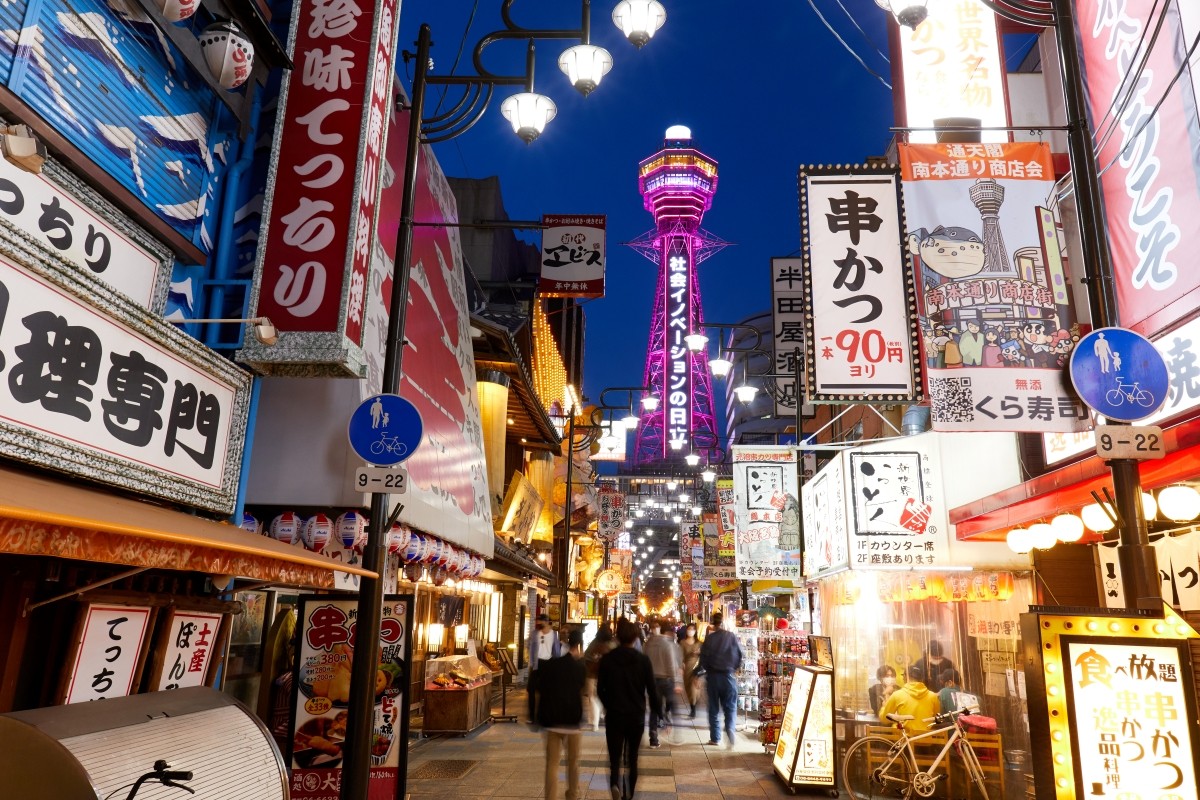
The Kansai dialect is one of the most familiar dialects in Japan. The language spoken in the Kansai area, such as Osaka, Kyoto, and Kobe, has unique intonations and expressions not found in standard Japanese, and many people find it “cute!”
In this article, we introduce the Kansai dialect in a list divided into beginner, intermediate, and advanced levels, along with the results of a survey of 15 people from Kansai. We will clearly explain the meanings, usage, food-related words, and even anime characters who speak Kansai dialect, all with example sentences. This is a definitive guide to the Kansai dialect, useful for travel and Japanese language study.
*If you purchase or reserve products introduced in this article, a portion of the sales may be returned to FUN! JAPAN.
What kind of Dialect is Kansai Dialect and Where is it Used?
Kansai Dialect, as the name suggests, is a dialect used mostly within the Kansai region of Japan. You'll find it used most predominantly in places such as Osaka, Kyoto, Kobe, and Nara. However, be careful, if you directly asked someone from the Kansai region about what Kansai Dialect is, they may get upset and tell you that the dialect is not one single thing, but different and unique depending on the area you're in within the Kansai region.
In reality, this is true, as there's not a single "Kansai Dialect" that's shared between all of these locations, it changes depending on where you are down to very small wording and intonation.
Not only this, but in Shiga Prefecture and Wakayama Prefecture, they speak what people call "Kansai Dialect", but it's nothing like that spoken in Osaka or Kyoto! Then you have Kyoto, Nara, Wakayama, Shiga, Gifu, Aichi, and Mie who also use dialect such as Mie Dialect, which is a type of Kansai dialect, except it has Nagoya and Tōkai dialect mixed in with it as well! How confusing!
To make it a little easier to understand, let's take a look at some examples for Osaka, Nara, and Kobe dialects. Here's how each different region says "Nani wo shiterun desuka" (What are you doing?).
- Standard Japanese:何をしているんですか?(Nani wo shiterun desuka?)
- Osaka :なにしてん?(Nani shiten?)
- Kyoto :なにしてはる?(Nani shiteharu?)
- Kobe:なにしとぉ?(Nani Shitoo?)
As you can see, the 3 areas have completely different ways of saying the same thing!
By the way, if you ask someone who was born in the Kansai Region what they think of these 3 different dialects, they will typically tell you that Osaka has a very lively and strong wording, Kyoto has a more graceful air to it, and Kobe is very stylish, it seems as though the residents of these areas are all quite unique in their fashion sense and pride. If you ever visit these areas yourself, make sure to pay attention to the way people talk and dress!
List of Kansai Dialect Daily Conversation: 100 Beginner, Intermediate, Advanced, and Food Words
The Kansai dialect is full of familiar phrases like “なんでやねん!(nande yanen!)” and “ほんま?(honma?)”.
Here, we introduce 100 commonly used Kansai dialect words in daily conversation, divided into beginner, intermediate, advanced, and food-related Kansai dialect. The list format with example sentences makes it immediately useful for travel, study abroad, or conversations with friends from Kansai.
This list was selected by an editor from Tokyo who currently lives in Tokyo. Therefore, the difficulty levels are based on a Kanto (Tokyo area) perspective, such as “I’ve heard it in Tokyo,” “I know the meaning but don’t use it,” or “I’ve never heard it at all.”
- Beginner: Words you’ve heard and know the meaning of, or are also used in Tokyo
- Intermediate: Words you’ve heard but aren’t confident of the meaning, or know but aren’t used in Tokyo
- Advanced: Words you’ve never heard, or have a different meaning from Tokyo Japanese
First, check to see how many of these levels you can understand!
【Beginner】30 Common Kansai Dialect Phrases
| Kansai Dialect | Romanization | Meaning |
| めっちゃ | meccha | Very |
| おおきに | ookini | Thank you |
| なんでやねん | nande yanen | Means “What are you talking about?” Often used as a retort in conversation |
| まいど | maido | Hello, welcome |
| なんぼ | nanbo | How much, how many |
| せや | seya | Yes |
| ちゃう | chau | Different, wrong |
| あかん | akan | No good, not allowed, not okay |
| しもた | shimota | Oops, I messed up |
| ええ | ee | Means “good.” Used in phrases like “めっちゃええやん(meccha ee yan/very good)” |
| ほんま | honma | Really, true |
| おもろい | omoroi | Funny, interesting |
| まける | makeru | To give a discount |
| むずい | muzui | Difficult |
| はよ | hayo | Hurry up, quickly |
| おとん | oton | Dad |
| おかん | okan | Mom |
| かまへん | kamahen | It’s okay, no problem |
| さいなら | sainara | Goodbye |
| しばく | shibaku | To hit |
| しょうもない | shomonai | Trivial, silly, nonsense |
| 知らんけど | shiran kedo | Means “I don’t know, though.” Often used at the end of a conversation |
| そら | sora | Often used to mean “that is” |
| どない | donai | How is it? In what way? |
| べっぴん | beppin | Beautiful woman |
| いちゃもん | ichamon | Complaint, picking a fight |
| ぼちぼち | bochi bochi | Little by little. When asked how you’re doing, it’s common to answer “ぼちぼちでんな” (bochi bochi denna) |
| すっからかん | sukkarakan | Empty, completely broke |
| 辛気臭い | shinki kusai | Annoying, irritating, gloomy atmosphere |
| がめつい | gametsui | Greedy |
【Intermediate】30 Common Kansai Dialect Phrases
| Kansai Dialect | Romanization | Meaning |
| ぎょうさん | gyosan | A lot, many |
| かんにん | kannin | Sorry |
| ごっつい | gottsui | Very |
| かます | kamasu | To do, to say |
| きばる | kibaru | To do your best |
| ええかっこしい | ee kakkoshii | Someone who tries to look cool |
| パチもん | pachi mon | Fake, imitation |
| 正味 | shomi | Honestly, to tell the truth |
| いけず | ikezu | Mean person |
| ちゃっちゃと | chacchato | Quickly, promptly |
| けったい | kettai | Strange, odd |
| 邪魔くさい | jama kusai | Troublesome, bothersome |
| シュッとしてる | shutto shiteru | Good-looking, stylish person |
| ちょける | chokeru | To mess around, joke |
| いてまう | itemau | To hurt someone, to get in trouble |
| こそばい | kosobai | Ticklish |
| ぐねる | guneru | To sprain (an ankle, etc.) |
| 一丁噛み | icchokami | Someone who butts in on everything |
| おぼこい | obokoi | Innocent, naive |
| どんつき | dontsuki | End of a street |
| いらち | irachi | Impatient, easily irritated person |
| ほかす | hokasu | To throw away |
| あんじょう | anjo | Skillfully, to go well |
| こすい | kosui | Sly, sneaky |
| 難儀 | nangi | Hardship, trouble |
| ぬくい | nukui | Warm |
| めばちこ | mebachiko | Stye (eye infection) |
| なんしか | nanshika | Anyway, for now |
| しらこい | shirakoi | Pretending not to know, feigning innocence |
| あほ | aho | Means “fool,” but not necessarily an insult (explained later) |
【Advanced】20 Kansai Dialect Phrases
| Kansai Dialect | Romanization | Meaning |
| モータープール | motor pool | Parking lot |
| ふてこい | futekoi | Impertinent, cheeky |
| さらぴん | sarapin | Brand new |
| いちびる | ichibiru | To mess around, joke |
| はみご | hamigo | Outcast, left out |
| おっちん | occhin | To sit properly, sit in seiza |
| コマ | koma | Training wheels on a bicycle |
| すかたん | sukatann | Fool, blockhead |
| しゅむ | shumu | Food is well seasoned, flavor has soaked in |
| もむない | momunai | Not tasty |
| せいだい | seidai | At most, as much as possible |
| だぼ | dabo | Fool, idiot |
| 日にち薬 | hinichi gusuri | Recovering little by little with time and rest |
| べべ | bebe | Last place, lowest rank |
| ぼんち | bonchi | Boy, young master |
| えらい | erai | Tired, exhausted. In standard Japanese, “erai” means “great” |
| なおす | naosu | To put something back in its place, to tidy up (in standard Japanese, “naosu” means “fix”) |
| さらう | sarau | To finish all the food on a plate (in standard Japanese, “sarau” means “carry away”) |
| つぶれる | tsubureru | To break down (in standard Japanese, “tsubureru” means “be crushed”) |
| よばれる | yobareru | To be treated to a meal, to receive (in standard Japanese, “yobareru” means “called”) |
【Special Edition】20 Kansai Dialect Food Words
| Kansai Dialect | Romanization | Meaning |
| 粉もん | konamon | Dishes made with flour. General term for foods like takoyaki and okonomiyaki. |
| かしわ | kashiwa | Chicken meat |
| 回転焼き | kaiten yaki | Obanyaki *A Japanese sweet made by baking red bean paste between wheat flour batter |
| こぶ・おこぶ | kobu / okobu | Kombu (kelp) |
| にぬき | ninuki | Boiled egg |
| かやくご飯 | kayaku gohan | Takikomi gohan (seasoned rice with various ingredients) |
| 他人丼 | tanin don | A rice bowl with beef or pork and onions simmered together and topped with egg. The counterpart to “oyakodon” (chicken and egg rice bowl) |
| カンカン | kankan | Can of sweets or drinks |
| 炊いたん | taitan | Simmered dish |
| おばんざい | obanzai | Kyoto home-style cooking. Refers to everyday side dishes |
| アテ | ate | Snacks served with alcohol |
| 突き出し | tsukidashi | Dish served first at an izakaya (otoshi) |
| マクド | makudo | McDonald’s (called “Makku” in Kanto) |
| レイコー | reiko | Iced coffee |
| ハイカラうどん | haikara udon | Udon topped with tempura bits (tenkasu) |
| メリケン粉 | merikenko | Wheat flour |
| ミンチ | minchi | Ground meat |
| おこうこ | okouko | Pickles, especially takuan (pickled daikon) |
| きずし | kizushi | Shime saba (vinegared mackerel) |
| 関東炊き・関東煮 | kantotaki / kantoni | Oden (Japanese hot pot dish) |
【Special Edition】Kansai Dialect First and Second Person Pronouns
| Type | Kansai Dialect | Romanization | Meaning / Usage |
| First person | うち | uchi | “I” mainly used by women. A soft, friendly way to refer to oneself. |
| First person | わし | washi | “I” mainly used by men. Common among older men. |
| First person | わて | wate | “I” used by men. Somewhat old-fashioned, heard in Osaka and Kyoto. |
| Second person | あんた | anta | Equivalent to “you.” Used among close friends, but can sound harsh at times. |
| Second person | 自分 | jibun | Unique Kansai usage to refer to the other person. Note: In standard Japanese, “jibun” means “oneself.” |
| Second person | きみら | kimira | Means “you all.” Plural form. |
【With Example Sentences】Kansai Dialect Daily Conversation Collection
Now, let’s introduce some classic phrases you can actually use in conversations when you visit Kansai during your trip to Japan. Since these are all short phrases, be sure to practice and try using them!
① When eating takoyaki
| Speaker | 関西弁 | Romanization | Meaning |
| Person A | あんた、たこ焼きよばれ~。 | Anta, takoyaki yobare | Please have this takoyaki. |
| Person B | おおきに。わあ、めっちゃうまいわ! | Okini, waa, meccha umai wa! | Thank you! Wow, it’s really delicious! |
② When shopping at a market
| Speaker | 関西弁 | Romanization | Meaning |
| Customer | これ、なんぼ? | kore, nanbo? | How much is this? |
| Shop staff | 1万円やで。 | Ichi man en yade. | It’s 10,000 yen. |
| Customer | ほんま? えらい高いな。 まけてや。 |
Honma? Erai takai na. Makete ya. |
Really? That’s pretty expensive. Can you make it cheaper? |
| Shop staff | かんにんしてや。 パチもんちゃうで。 |
Kannin shite ya. Pachi mon chau de. |
Come on, give me a break. It’s not a fake! |
| Customer | そしたらむずいわ。 さいなら。 |
Soshitara, muzui wa. Sainara. |
I see… that’s going to be difficult. Goodbye. |
What is “Ese Kansai-ben”? How to Tell the Difference Between Fake and Real, According to 15 Kansai Locals
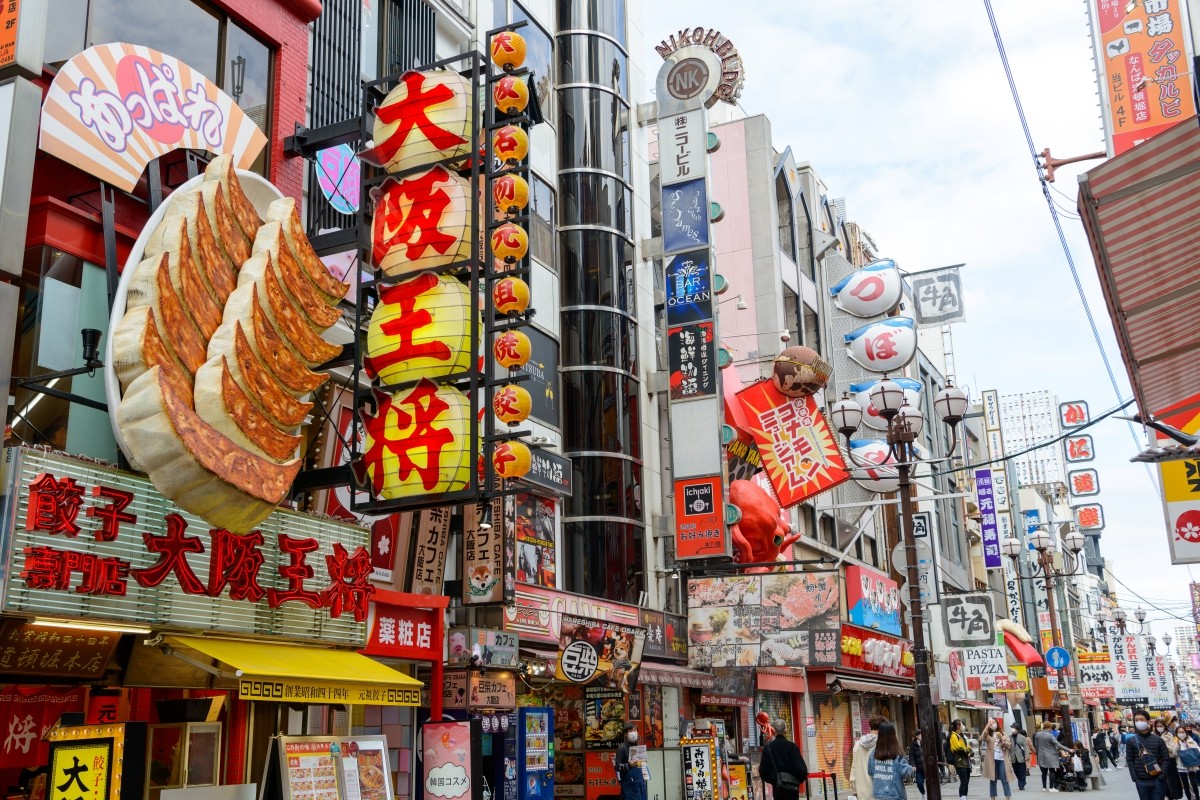
On Japanese social media, you sometimes see opinions like, “It feels a bit strange when people who aren’t from Kansai use Kansai-ben.” In Japan, when people from outside Kansai use Kansai dialect, it’s sometimes called “Ese Kansai-ben” (fake Kansai dialect).
So this time, we conducted a survey with 15 people from Kansai, asking how they feel about “Ese Kansai-ben.” The results showed that while the most common answer was “I don’t like it,” about 40% answered “I don’t really care.” In other words, some people mind it, but others don’t care much.
The Easiest Way to Tell: Intonation
The thing Kansai people notice most easily is the difference in intonation. In Kansai-ben, there is often a strong accent in the middle of a word, which is one of its features.
Because of this, if you speak with the flat intonation of standard Japanese, it’s easy for locals to spot it as “Ese Kansai-ben.”
- “You can tell by how people say ‘Univa’ or ‘Tanaka-san’.” (Male in his 20s from Shiga)
For example, in Kansai, people pronounce the middle syllable strongly in words like “Univa (USJ)” or “Tanaka-san.” In contrast, in Kanto, the pronunciation is flat all the way to the end, so native speakers can immediately tell the difference.
Be Careful Not to Overuse “~やねん(yanen)” or “~さかい(sakai)”
Another common opinion was about how sentence endings are used. Especially if you use typical Kansai-ben endings like “~やねん(yanen)” or “~さかい(sakai)” too much, it can sound unnatural.
- “It bothers me when people overuse ‘~やねん, ~ねん, ~さかい’.” (Female in her 40s from Kobe)
These expressions certainly have a Kansai dialect-like ring to them, but in actual conversation, they are used naturally according to the context. If you end every sentence with “~やねん”, native Kansai speakers may find it unnatural or forced.
Why is Kansai dialect considered “cute”? Reasons it’s attractive to the opposite sex
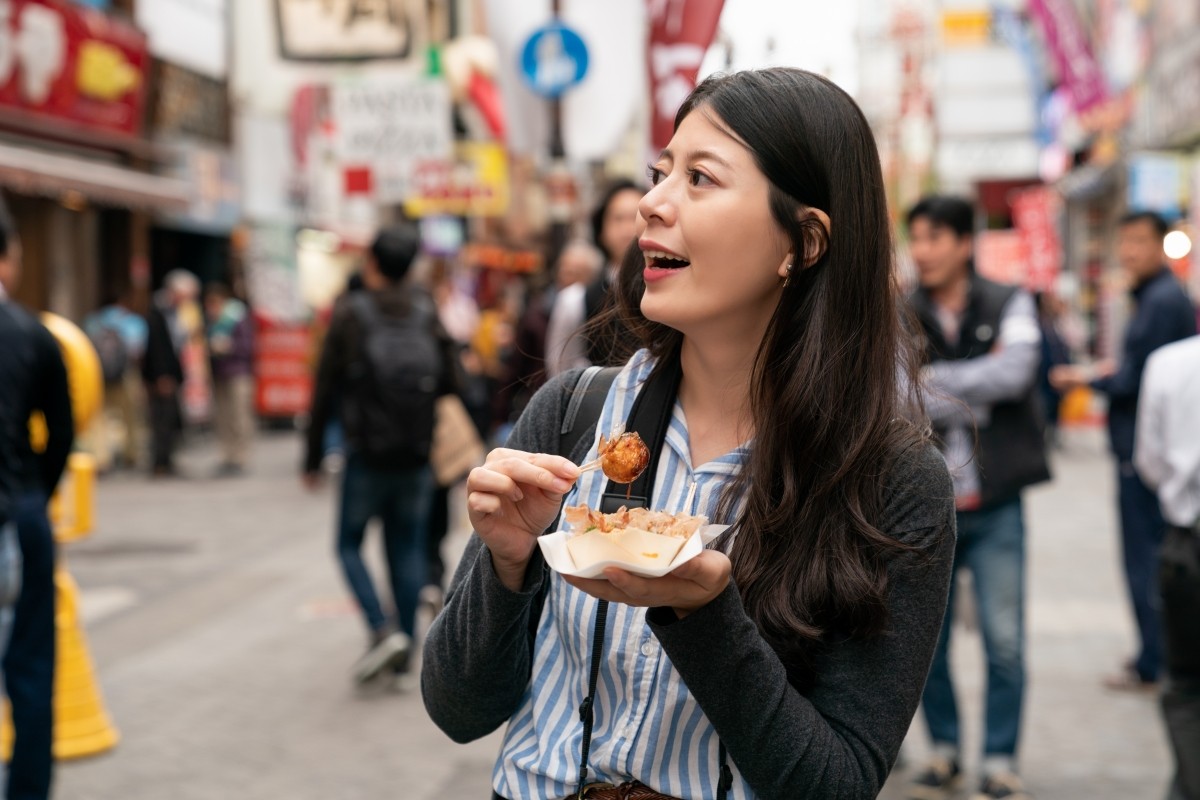
In Japan, you often hear people say that “Kansai dialect is cute.” Especially when you hear women from Kansai speak with their soft intonation and rhythmic way of talking, even I, who am from Tokyo, can’t help but think, “That’s so cute!”
But how do people from Kansai actually feel about their own dialect? As before, we asked 15 people from Kansai, “Do you think it’s cute when someone you’re interested in romantically speaks Kansai dialect?” Surprisingly, the overwhelming majority answered “No.” In particular, every male respondent said, “I don’t think women speaking Kansai dialect is cute.”
Is Kansai dialect cute? Honest opinions from Kansai natives
- “I’ve never really thought about it, and I’ve never thought it was cute.” (Male, 40s, from Osaka)
- “I’ve heard it as a matter of course since I was little, so I don’t think it’s cute.” (Male, 40s, from Nara)
- “When I’m in Kansai, I don’t think Kansai dialect is especially cute. On the contrary, I think people who speak Hakata dialect are cute.” (Male, 40s, from Hyogo)
- “I think any dialect can be ‘cute’ depending on the person’s looks or vibe. But I think men from outside the region feel it more strongly.” (Female, 20s, from Osaka)
- “When I hear children speaking it, I do think it’s cute.” (Female, 50s, from Osaka)
Because it’s a language they’ve been familiar with since birth, it seems there are few opportunities for them to feel it’s “cute.” On the other hand, women tended to feel more attached to Kansai dialect, with some saying “I don’t feel strongly either way” or “It’s cute when children speak it.”
“Cute Kansai dialect” from the perspective of people from other regions
Interestingly, people from outside Kansai have different opinions. Here’s what a man from Tokyo had to say:
“From my experience, I thought people from Kyoto were cute. I get along well with people from Hyogo. People from Osaka seem a bit more intense.” (Male, 50s, from Tokyo)
As you can see, impressions of Kansai dialect vary greatly depending on the area and the person. While the difference in intonation can make it seem “cheerful and energetic” or “friendly,” the unique characteristics of each region may also contribute to the “cute” impression.
What does “アホ(aho)” mean in Kansai dialect? How is it different from “バカ (fool)”?
When the term "Aho" is used in Kansai, you're actually being complemented.
Typically, "Aho" in Japanese is used in a negative manner to call someone stupid, however, for Kansai locals, especially people from Osaka, it's actually mostly used as a form of compliment.
For example, "Anta, honma aho yana" (You really are stupid), while it may sound mean, it's actually used to show affection towards the person you're saying it to. When someone says this to you, you can reply "Ahochaimannen, paadennen".
So, if someone ever calls you an "aho" in Kansai, you can rest assured knowing you've become good friends with that person, so don't get angry!
However, "baka" holds the same meaning as the rest of Japan, so make sure not to use them interchangeably!
[With Video] Features of Kansai dialect intonation
The biggest feature of Kansai dialect is the “pitch accent” of the words. Even with the same word, the “Kansai-ness” comes out depending on which part is pronounced with a higher pitch.
For example, sometimes the first syllable is pronounced higher, and sometimes the middle syllable is emphasized. In contrast, in the Kanto region, people tend to speak in a flatter tone with less intonation. That’s why, when someone who isn’t used to Kansai dialect tries to speak it, it’s easy to tell that “the intonation is off.”
In fact, it’s easier to understand the actual pronunciation by listening rather than reading. In the FUN! JAPAN video below, two women from Osaka give a lesson on Kansai dialect. Be sure to watch and experience the natural differences in intonation for yourself.
What is “Kotekote” Osaka dialect (Kansai dialect)? Distinctive features of Osaka natives
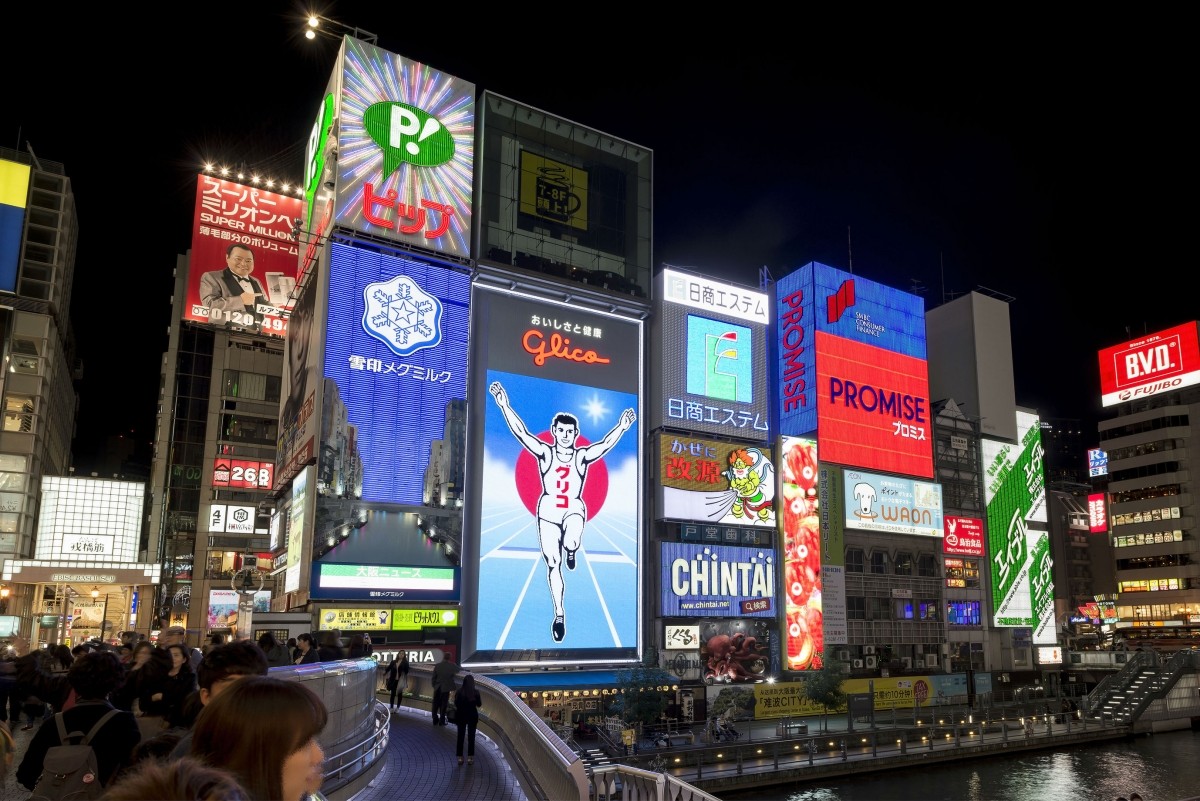
"Kotekote no Osaka ben" is a common expression used by Japanese people, meaning a very Osaka-like way of speaking. In other words, it refers to intonation, phrasing, and tempo that are exactly like those of people from Osaka. For example, the iconic retort "nande yanen! (What are you talking about!?)," or expressions like "honma ni? (Really?)" and "meccha umai! (super delicious!)," when spoken in a lively and bright manner, give off the "kotekote" image.
Why “Kotekote no Osaka ben” Was Born
Osaka has long been known as a city of merchants, where humor, rhythm, and friendliness in conversation have always been valued. This culture is reflected in the language, and it is said that people naturally developed emotional intonation and quick-witted responses. As a result, compared to standard Japanese, reactions tend to be bigger and conversations often include jokes.
Osaka Dialect = Symbol of Friendliness
On the other hand, the expression "kotekote no oosakaben" also has a nuance of being a humorous nickname. It is used as a word that symbolizes the cheerful, friendly, and easy-to-get-along-with nature of people from Osaka. When you visit Osaka as a tourist, be sure to experience the warm, "kotekote" intonation in conversations with shop staff and locals. Through the rhythm of the language, you will surely feel the friendliness of Kansai people.
Popular Anime Characters Who Speak Kansai Dialect
When watching Japanese anime, it may be hard to notice in dubbed or subtitled versions in other countries, but in fact, there are many characters who speak Kansai dialect. Finally, as an anime lover, I would like to introduce some popular characters who speak Kansai dialect!
Heiji Hattori / Detective Conan (Case Closed)
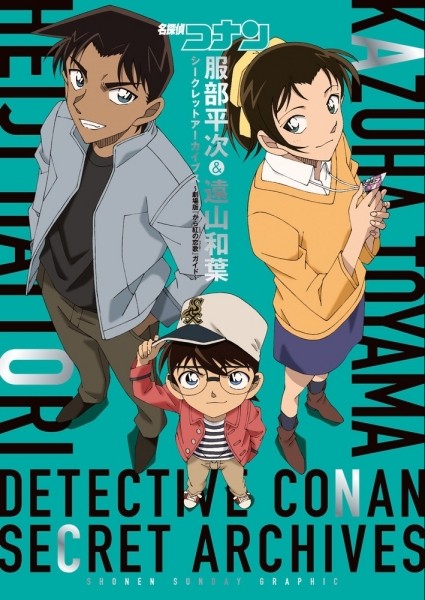
A high school detective from Osaka who appears as the rival of Shinichi Kudo (Conan's true identity). His strong Kansai dialect is one of the major charms of the series.
🎁Buy "Heiji Hattori" items (Animate)
Cerberus (Kero-chan) / Cardcaptor Sakura
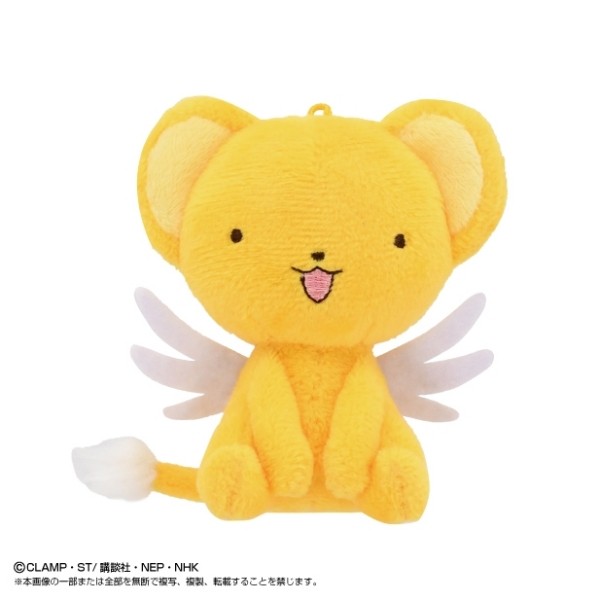
The guardian beast Cerberus (or Keroberos in Japanese, nicknamed Kero-chan), who accompanies the protagonist Sakura, speaks in a thick Kansai dialect, which contrasts with his cute appearance. His high-pitched voice saying things like "~やで!(yade! = you know)" is adorable, and he has been a beloved character among fans for many years.
💛See Cardcaptor Sakura merchandise (Animate)
Nurude Sasara & Tsutsujimori Rosho / Hypnosis Mic
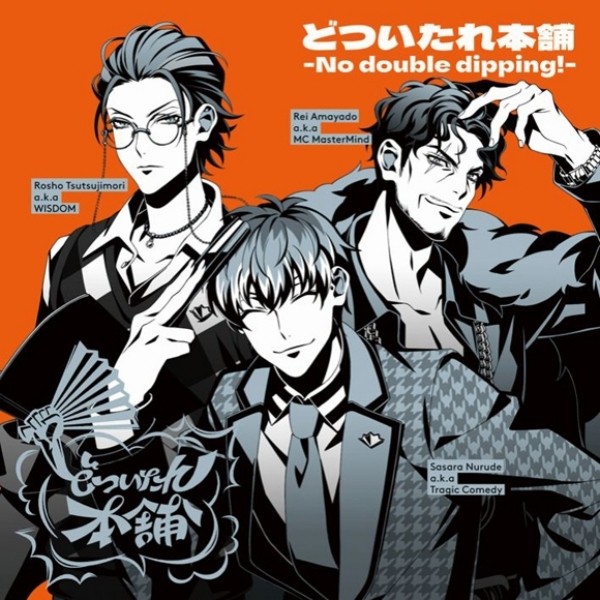
Members of the rap team "Dotsuitare Honpo" from the music battle anime Hypnosis Mic. Both of them are known for rapping in strong Kansai dialect, and their energetic, Osaka-style performances captivate fans with their enthusiasm and high spirits.
💿See Hypnosis Mic merchandise (Animate)
Aida Hikochi / SLAM DUNK
A student on the basketball team of Ryonan High School, the rival school of the main characters. He is famous for his Kansai dialect catchphrase "要チェックや!(Check it out!)"
In anime, the Kansai dialect is one of the elements that strongly defines a character’s personality. Even within the Japanese language, differences in intonation and expression can reveal a person’s hometown or character, which is the charm of Kansai dialect. Next time you watch anime, be sure to pay attention to the "Kansai dialect characters" as well.
A Commercial Everyone Knows in Kansai!
Have you ever heard about Osaka's soul food alongside takoyaki, 551 HORAI's steamed bun with minced pork filling?
551 HORAI is a long-standing Chinese chain restaurant that started from the center of Osaka that has a commercial so well-known that there's most likely not a single person who lives in Kansai who doesn't know it!
The phrase "551 ga nai toki ⤵" is especially well known, so if you ever hear "551 ga aru toki ⤴", during your trips around Kansai, if you reply accordingly with "551 ga nai toki ⤵" you're sure to be welcomed into the Kansai family!
By the way, if you ever eat one of those steamed pork buns on the shinkansen, it's famous that the smell of the pork bun will fill the entire train. So, if you decide to try one for yourself, make sure to avoid eating it in public spaces or public transport and instead to try it in your hotel room or at the restaurant!
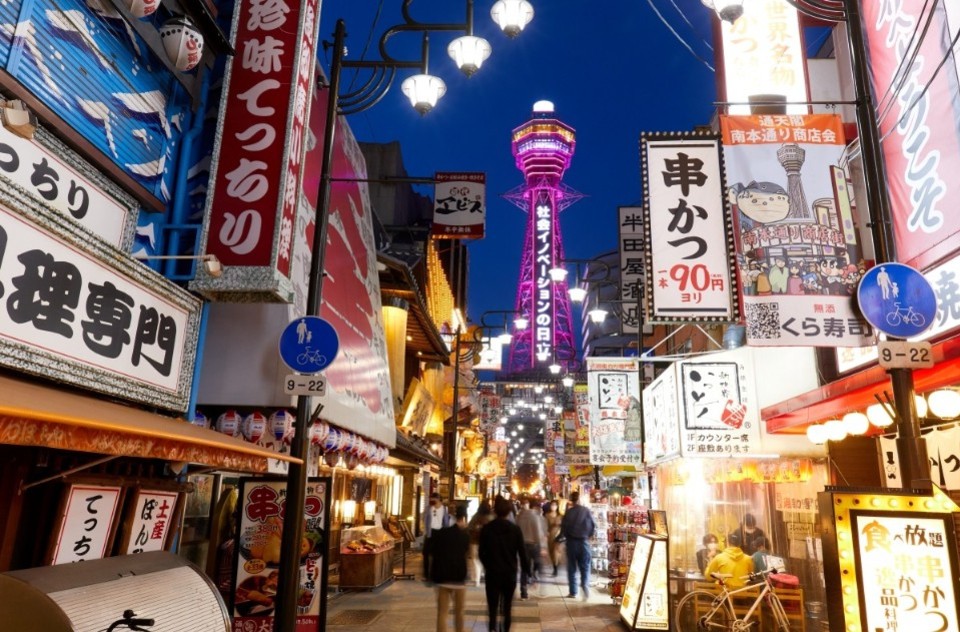


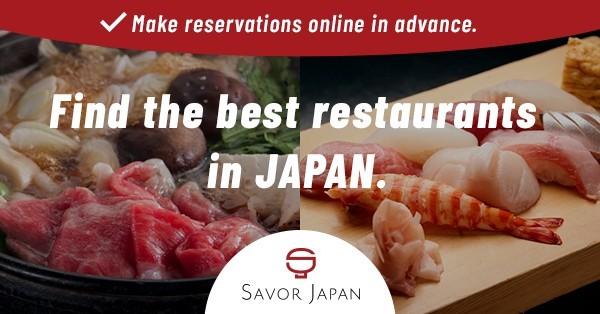
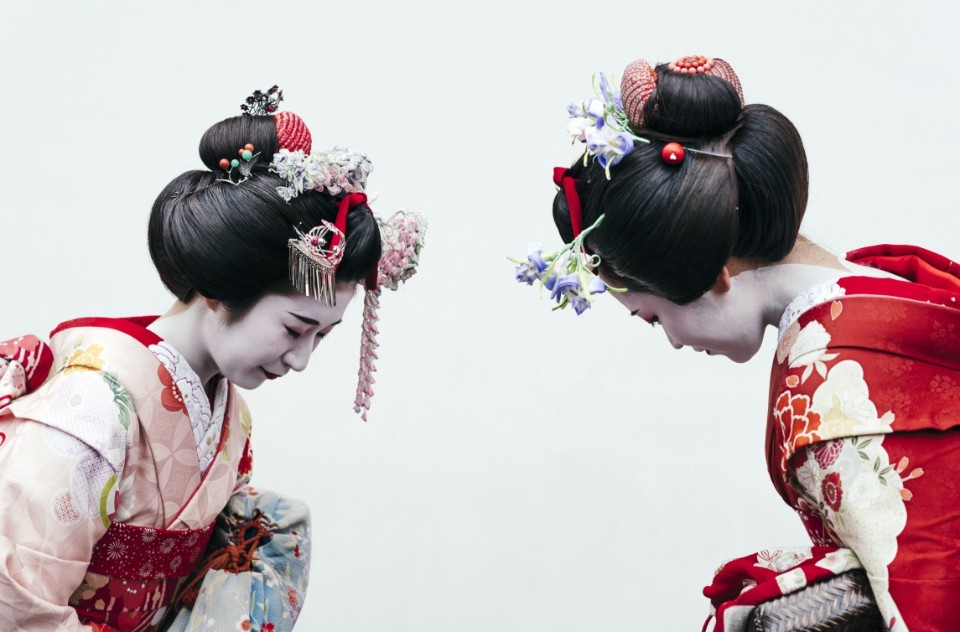
Comments